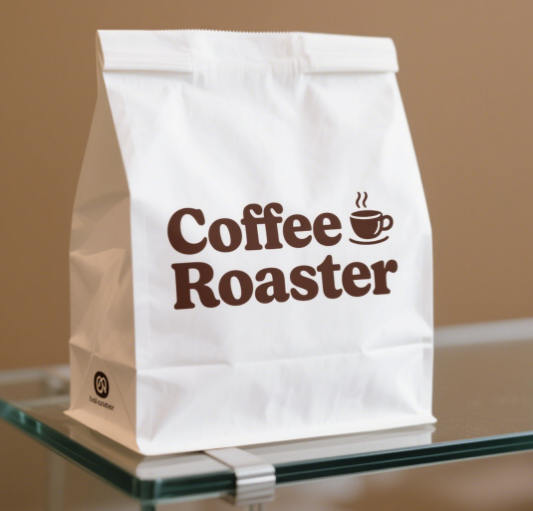העלייה בפתרונות האריזה הפועלת למען הקיימות בעידן המסחר המודרני
בזמן שמודעות הסביבתית העולמית מגיעה לרמות שלא נראו בעבר, תעשיית האריזה ניצבת בפנת מכריעה. שקיות אריזה ידידותיות לסביבה צמחו לפתרון מהפכני, המטריאליסטית את הדרך בה עסקים וצרכנים מתקרבים לאריזת מוצרים. פתרונות חדשניים אלו מייצגים יותר מאשר בחירה אקולוגית – הם מבטאים העברה יסודית בדרכנו לחשוב על קיימות, אחריות צרכנית ופיקוח סביבתי תאגידית.
המעבר לחומרי אריזה ברת-קיימא הוא תוצאה של הבנה מעמיקה יותר של ההשפעה הסביבתית שלנו והצורך הדחוף להפחית פסולת. שקיות אריזה ידידותיות לסביבה מציגות חלופה מבטיחה המתאימה הן למצווה האקולוגית והן לדרישות העסקיות המודרניות, וсוצרות גשר בין הצורך המסחרי לבין שימור הסביבה.
השפעה סביבתית ותכונות תקינות
תכונות פיזול ביו-דיגרדביליות ופחת פסולת
אחת ההישגים החשובים ביותר של שקיות האריזה הידידותיות לסביבה היא הטבע הביו-דיגרדבילי שלהן. בשונה מאrizת פלסטיק מסורתית שאינה נעלמת מהסביבה במשך מאות שנים, חלופות אלו נמסות באופן טבעי, לרוב תוך מספר חודשים עד מספר שנים. תכונה זו מפחיתה משמעותית את העומס על מזבלות ומגנה על הסיכון של זיהום סביבתי.
תהליך הפירוק של שקיות קיימות אלו אינו יוצר שאריות רעילות, ומחזיר את הרכיבים בצורה טבעית לחדרה. מרבית השקיות החברתיות לסירוס סביבתי נועדו להתפרק למים, פחמן דו-חמצני וחומר אורגני, מבלי להשאיר סימן רעיל במערכות הקרקע או המים.
שמירה על משאבים ויעילות אנרגטית
ככלל, ייצור של שקיות סירוס סביבתי מצריך פחות אנרגיה ומשאבים טבעיים ביחס לחומרי סירוס קונבנציונליים. יצרנים נוטים להשתמש במשאבים מתחדשים כגון חומרים צמחיים, חומרים מחזוריים או מוצרים מיערות בר קיימום. גישה זו לא רק שומרת על משאבים טבעיים חשובים, אלא גם מקטינה את הפסיפס הפחמני שמקושר לייצור סירוס.
היעילות האנרגטית משתרעת מעבר לייצור למחזור החיים של האריזה כולה, כולל תחבורה ופינוי. המשקל הקל של מספר אלטרנטיבות ידידותיות לסביבה מקטין את צריכת הדלק במהלך המשלוח, מה שמעודד את השמירה על הסביבה.
הטבות כלכליות למעסקים
יעילות כלכלית ויתרונות שוק
בעוד שהשקעה ראשונית בקופסאות אריזה ידידותיות לסביבה עשויה להיראות גבוהה יותר בהשוואה לאופציות המסורתיות, ברוב המקרים היתרונות הכלכליים לטווח רחוק עולים על העלות. חברות המטבשות פתרונות ברמה זו לרוב חווים הפחתת עלויות משלוחים כתוצאה מחומרים קלים יותר, הנחות מיסוי למשקי סביבה, וسمועה מסחרית טובה יותר שתורמת לעלייה בשוק הפוטנציאלי.
ההעדפת הצרכנים המתגברת למוצרים ברת-תוקף יצרה יתרון תחרותי עבור עסקים המשתמשים בשקיות אריזה ידידותיות לסביבה. המעבר הזה בהתנהגות הצרכנים תורגם לנגישה טובה יותר של הלקוח ויתרה מכך, רווחים גבוהים יותר למוצרים ידידותיים לסביבה.
הסכמה תקנית והבטחת עתיד
בהתאם לכך שתקנות סביבתיות נעשות יותר ויותר קשוחות ברחבי העולם, עסקים המאמצים שקיות אריזה ידידותיות לסביבה ממקמים את עצמם לפני דרישות עמידה. הגישה המתקדמת הזו עוזרת להימנע מהוצאות עתידיות שעלולות לצוץ עם שינויי תקנות וקנסות על אי עמידה.
חברות המשקיעות בפתרונות אריזה ברת-תוקף מפגינות עניין מראש במעבר לתנאי שוק משתנים וצורות תקנות. המיקוד האסטרטגי הזה יכול להוביל לחסכון משמעותי בהוצאות וליתרון תחרותי לאורך זמן.
הטבות לצרכן והתגובה בשוק
הגנה מקדמת על המוצר ואיכות
שקיות אריזה ידידותיות לסביבה מודרניות ל종_PROVIDE הגנה טובה יותר בהשוואה לחלופות המסורתיות. חומרים מתקדמים ועיצובים חדשניים מבטיחים שהמוצרים ישארו טריים ומוגנים לאורך שרשרת האספקה. פתרונות האריזה הללו יכולים להציע תכונות מפרידה ausgezeichnetות נגד לחות, אויר ואור, ולשמור על שלמות המוצרים תוך כדי שמירה על הסביבה.
הפיתוח של טכנולוגיות אריזה חכמות בתוך תחום האריזה הקיימה הוביל לפתרונות המסוגלים להאריך את חיי המדף של מוצרים באופן טבעי, להפחית פסולת מזון ולשפר את שביעות הרצון של הצרכנים. התקדמות זו מוכיחה כי אחריות סביבתית אינה חייבת להקריב איכות או הגנה של המוצר.
היבטים של בריאות ובטיחות
שקיות אריזה ידידותיות לסביבה מכילות בדרך כלל פחות כימיקלים מזיקים וחומרים מוסיפים בהשוואה לחומרי אריזה קונבנציונליים. תכונה זו מועילה במיוחד ליישומים של אריזת מזון, בהם סיכון לדיון כימי לתוך המוצרים הוא דאגה גדולה לצרכנים.
העדר של חומרים שעלולים להיות מזיקים כמו BPA ופтолטים בחומרי האריזה הידידותיים לסביבה מעניק ביטחון למשתמשים המודעים לבריאותם. היבט זה הפך להיות חשוב יותר בהחלטות הקנייה של הצרכנים, מה שמגביר את הביקוש לפתרונות אריזה ברמה.

אסטרטגיות יישום לעסקים
תכנון מעבר ואינטגרציה לשרשרת האספקה
יישום מוצלח של שקיות אריזה ידידותיות לסביבה מחייב תכנון זהיר ושיתוף פעולה לאורך שרשרת האספקה. על חברות להעריך את תהליכי האריזה הנוכחיים שלהן, לזהות אלטרנטיבות ברות-קיימא מתאימות ולפתח לוחות זמנים ליישום שימנעו הפרעות משמעותיות לפעילות.
הקמת שותפויות עם ספקים אמינים של חומרי אריזה ידידותיים לסביבה מבטיחה איכות ותפעול עקביים. שיתוף פעולה זה מוביל לעיתים קרובות לחדשנות בעיצוב האריזות ולשיפור תוצאות הקיימות עבור כל הגורמים המעורבים.
הכשרת צוות ותקשורת עם לקוחות
יישום אפקטיבי של יוזמות אריזה קיימות מחייב הכשרה מקיפה של הצוות ביחס לטיפול בחומרים חדשים ובהבנת היתרונות הסביבתיים שלהם. העובדים הופכים למקדמי איכות שלמחויבות הסביבתית של החברה כאשר הם מבינים ומעריכים את חשיבות השינויים הללו.
תקשורת ברורה עם הלקוחות בנוגע למעבר לקופסאות אריזה ידידותיות לסביבה עוזרת לבניית תודעה ו הערכה של פעולות ברמה. שקיפות זו יכולה לחזק את היחסים עם הלקוחות ולשפר את הנאמנות למותג.
שאלות נפוצות
מה הופך אריזות לאריזות ידידותיות לסביבה?
שקיות אריזה ידידותיות לסביבה מיוצרות מחומרים בר-קיימא שניתן לפרקן ביולוגית, למחזר או שמיוצרות ממקורות מתחדשים. הן נועדו להפחית את ההשפעה הסביבתית לאורך מחזור החיים שלהן, מהתהליך הייצור ועד לביטול, תוך שמירה על תפקוניות ותכונות הגנה נדרשות.
כמה זמן לקח לשקיות אריזה ידידותיות לסביבה להתפרק?
זמן ההתפככות משתנה בהתאם לחומרים הספציפיים שנעשה בהם שימוש ולתנאי הסביבה. רוב שקיות האריזה הידידותיות לסביבה נפרקות בתוך 3-6 חודשים במכונות קומפוסט מסחריות, בעוד שאחרות עשויות להיקח עד 24 חודשים להפרקה בתנאי דירת-בית.
האם שקיות אריזה ידידותיות לסביבה חזקות באותה מידה כמו אריזות מסורתיות?
שקיות אריזה ידידותיות לסביבה מודרניות נועדו להתאים או לחרוג מהביצועים של אריזות מסורתיות במונחי קיימא ו הגנה. התקדמות במדעי החומרים ובשיטות ייצור סילקה את הקורבן המסורתי בין קיימות לפונקציונליות.
מה השפעת הפקטים הידידותיים לסביבה על מחיר המוצר?
למרות שהאריזה הקיימית עשויה להיות יקרה במקצת בתחילה, מגוון רחב של עסקים מגלים שהתועלת הכלכלית הכוללת, הכוללת הפחתת עלויות משלוח, שיפור דמות המותג והנחות מיסוי פוטנציאליות, מפצה על הוצאות אלו. בנוסף, ככל שמותגד ייצור ומשתקפות טכנולוגיות חדשות, הפער במחיר בין אריזות קונבנציונליות לאריזות ידידותיות לסביבה הולך וקטן.




